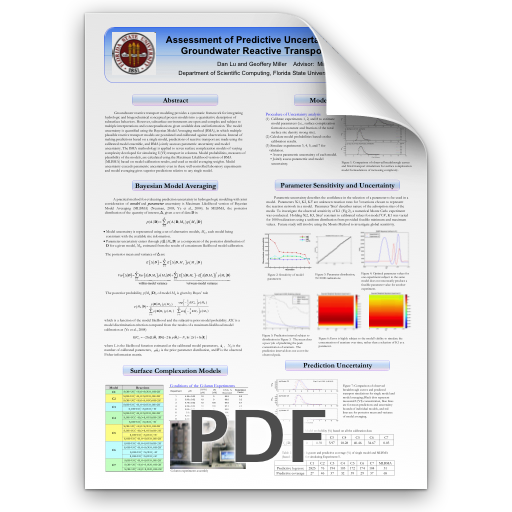
Assessment of Predictive Uncertainty in Coupled Groundwater Reactive Transport Modeling
Abstract
Groundwater reactive transport modeling provides a systematic framework for integrating hydrologic and biogeochemical conceptual process models into a quantitative description of subsurface behaviors. However, subsurface environments are open and complex and subject to multiple interpretations and conceptualizations given available data and information. The model uncertainty is quantified using the Bayesian Model Averaging method (BMA), in which multiple plausible reactive transport models are postulated and calibrated against observations. Instead of making predictions based on a single model, predictions of reactive transport are made using the calibrated model ensemble, and BMA jointly assesses parametric uncertainty and model uncertainty. The BMA methodology is applied to seven surface complexation models of varying complexity developed for simulating U(VI) transport in columns. Model probabilities, measures of plausibility of the models, are calculated using the Maximum Likelihood version of BMA (MLBMA) based on model calibration results, and used as model averaging weights. Model uncertainty exceeds parametric uncertainty even in these well-controlled laboratory experiments and model averaging gives superior predictions relative to any single model.

